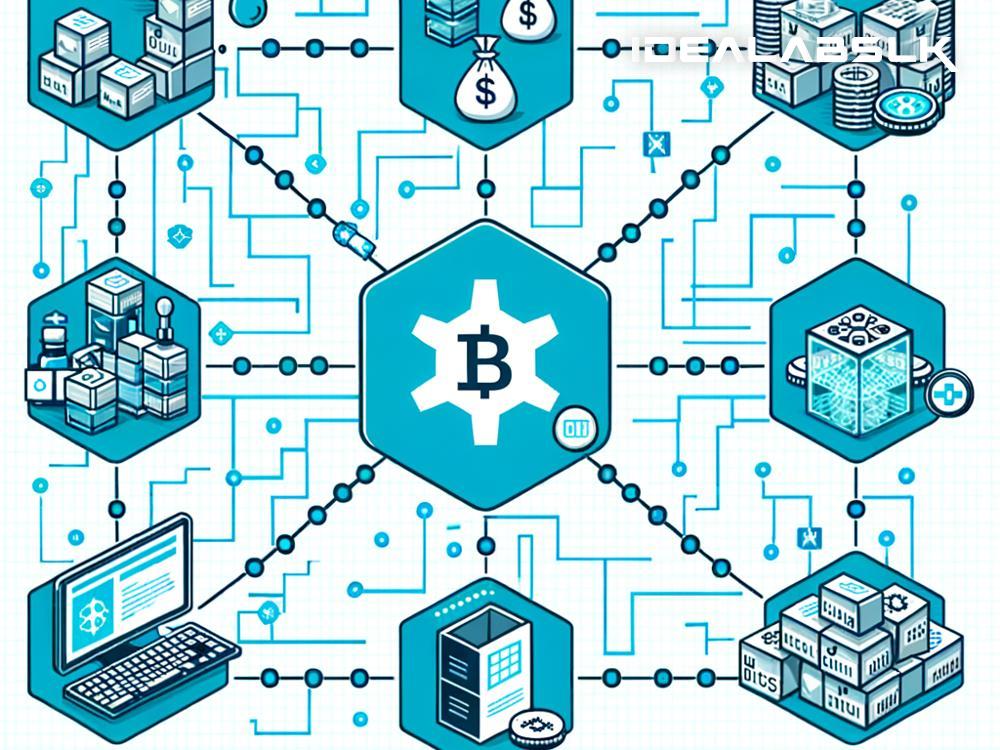How Blockchain is Changing the Game in the Pharmaceutical Industry
When we hear the word "blockchain," most of us think about cryptocurrencies like Bitcoin or Ethereum. But blockchain technology is much more than just a platform for digital currencies. It's a revolutionary way of recording information that's nearly impossible to hack or cheat, making it perfect for a wide range of industries. And one sector that's starting to see the immense benefits of blockchain technology is the pharmaceutical industry.
The pharmaceutical industry is crucial for our health and well-being, creating the medicines and vaccines that keep us going. However, it's also an industry plagued by challenges like counterfeit medicines, complex supply chains, and concerns about patient privacy and data security. That's where blockchain comes in, offering solutions that could make medicines safer, supply chains more transparent, and patients' data more secure.
Making Counterfeit Medicines a Thing of the Past
One of the most exciting ways blockchain is revolutionizing the pharmaceutical industry is by tackling the problem of counterfeit medicines. These fake drugs are a global issue, sometimes containing the wrong amount of active ingredients or none at all. This isn't just about losing money; counterfeit medicines can be dangerous or even deadly.
Blockchain helps prevent this by providing a way to track and verify the authenticity of medicines at every step of the supply chain, from the manufacturer to the pharmacy shelf. Each step can be securely recorded on a blockchain ledger, which is tamper-proof. This means that any attempt to introduce counterfeit medicines into the supply chain could be quickly spotted and stopped.
Streamlining the Supply Chain
The journey of a drug from its manufacturing to reaching the patient is complicated. It involves numerous parties, including the manufacturers, wholesalers, and retailers, not to mention the regulatory bodies that oversee them all. This complexity can lead to inefficiencies, errors, and increased costs.
Blockchain can simplify these complex supply chains through its transparent and secure ledger. Each transaction, movement of goods, and compliance check can be recorded on a blockchain, visible to all parties involved. This not only increases efficiency and reduces errors but also ensures that any recalls can be swiftly managed to keep patients safe.
Keeping Patient Data Secure and Private
Patient privacy is a big concern in the pharmaceutical industry. Medical records, including details about medications, are sensitive data that need to be kept secure. At the same time, this data needs to be accessible to healthcare providers for effective treatment.
This is another area where blockchain can make a big difference. It can provide a secure and immutable record of patient data, accessible only by individuals or entities that have been given permission. This could make sharing patient data between healthcare providers smoother and safer, ensuring that patient privacy is maintained.
Ensuring Trust and Transparency
Trust is a fundamental issue in healthcare. Patients need to trust that the medicines they take are safe and effective. Likewise, governments and regulatory bodies need to trust that pharmaceutical companies are complying with regulations.
Blockchain's transparent nature can help build this trust. For example, clinical trial data recorded on a blockchain cannot be altered, making the results more reliable. Similarly, recording manufacturing and compliance data on a blockchain can help ensure that companies are adhering to regulations.
Looking Ahead
The potential of blockchain in the pharmaceutical industry is immense, but it's still early days. Implementing blockchain technology requires significant investment in terms of money, time, and expertise. There are also regulatory hurdles to consider since the pharmaceutical industry is one of the most heavily regulated sectors.
However, the benefits of blockchain for the pharmaceutical industry are clear, from improving patient safety and privacy to streamlining supply chains and ensuring the authenticity of medicines. As more companies and regulators recognize these benefits, we can expect blockchain to play an increasingly important role in delivering safe, efficient, and trustworthy healthcare.
In essence, blockchain is not just a buzzword; it's a technology that could genuinely revolutionize how the pharmaceutical industry operates, making it safer and more transparent for everyone involved, from manufacturers to patients. The path forward isn't without its challenges, but the destination—a world where medicines are safer, supply chains are transparent, and patient data is secure—seems well worth the effort.

